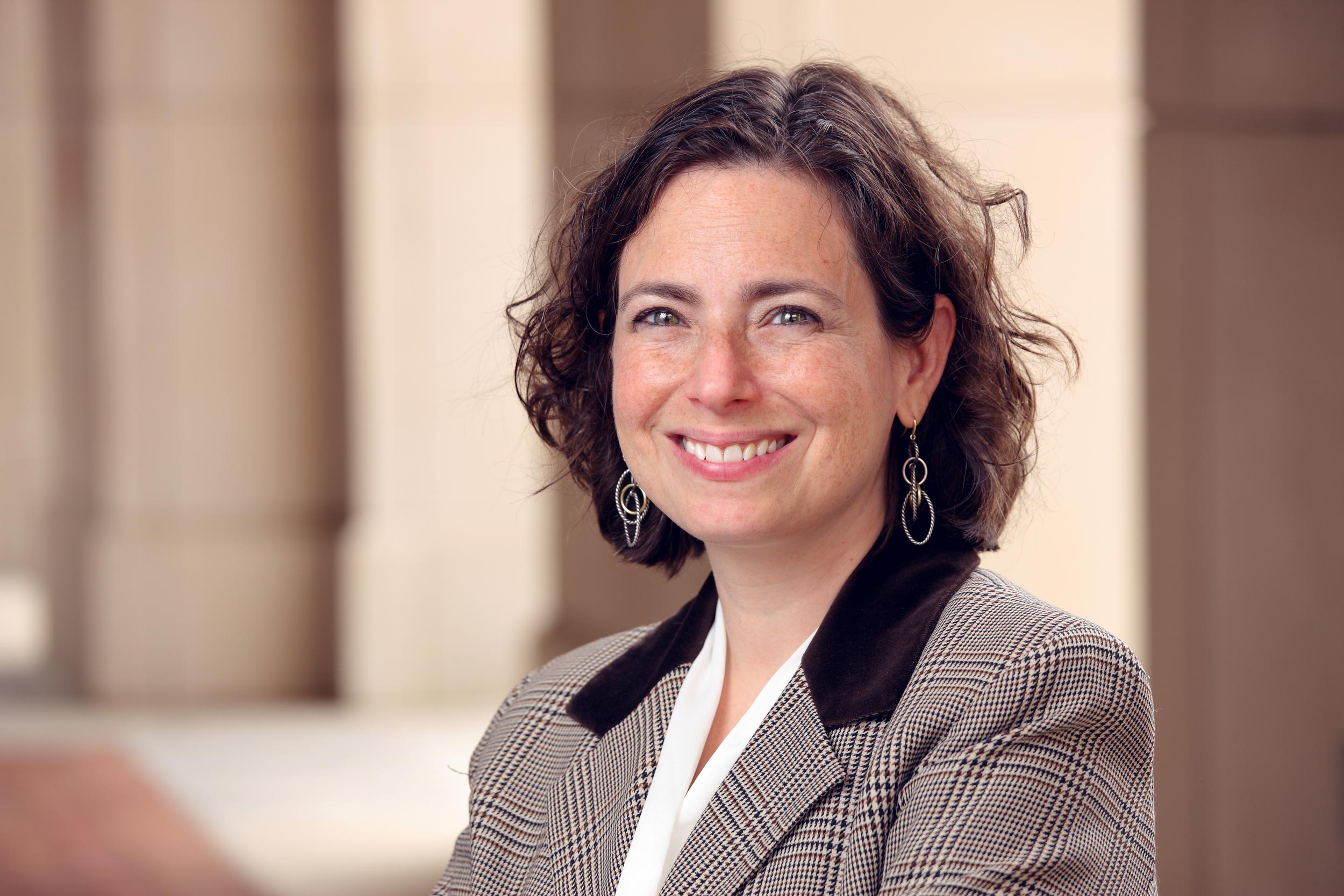One of the central ideas in criminal law is that people should be punished because they deserve it, and only as much as they deserve. This view – retributivism – contends that it is wrong to punish people who are innocent and to inflict greater punishment than is proportionate to the offense.
Courts and commentators must then still determine what a “just” punishment may be.
Professor Kimberly Kessler Ferzan, a legal philosopher at the University of Virginia School of Law, has co-written a new book that explores a series of quandaries that have arisen from her scholarship concerning retribution in criminal law.
“Reflections on Crime and Culpability: Problems and Puzzles,” which Ferzan co-wrote with professor Larry Alexander of the University of San Diego School of Law, was released last week from Cambridge University Press.
The book builds on the pair’s 2009 book, “Crime and Culpability: A Theory of Criminal Law,” which asked what a retributivist criminal law should look like. They argued, among other things, that attempted crimes are as culpable as completed crimes and that negligence is not culpable and should not be within the sphere of criminal law.
“Attempts should be punished the same as completed crimes,” Ferzan said. “So it doesn’t matter if I shoot at you and hit you. It doesn’t matter if I shoot at you and miss. I should be punished the same amount. Why would you let luck determine what someone’s punishment is?
“And we also argue, though, that attempts shouldn’t be punished until you are actually committing an act that is sort of a ‘last act.’ That is, when you’ve unleashed the risk of a harm that you can no longer completely control. So if I’m coming at you with a knife, but I can change my mind, then that shouldn’t count as having attempted to kill you yet, though I may be guilty of other offenses, such as threatening and thereby scaring you.”
In the new book, Ferzan and Alexander test the limits of their philosophical premises by discussing questions not contained in their previous collaboration. Ferzan said the “what ifs” came to them over the years as a result of peer discussions or in everyday thought.
“Problems and Puzzles” presents a wide-ranging series of topics, including how individuals assess risks of other people’s behavior, omission liability, moral ignorance and recidivism, among other questions.
“Many of these puzzles aren’t the kinds of questions that a first-year criminal law student is going to necessarily come up against,” Ferzan said. “And yet at the same time, when you really dig into what the criminal justice system is doing, or how to think about it, you will ultimately get to this kind of philosophical bedrock.”
The puzzles the authors confront are not merely philosophical, ivory tower questions. The authors address personal identity and the role of memory, at a time when Madison v. Alabama is pending before the Supreme Court. The case, argued in October, asks whether it violates the Eighth Amendment to execute someone with no memory of an offense. (The man sentenced to death, Vernon Madison, experienced a series of strokes.)

Ferzan and Alexander also apply their analysis of punishment when multiple offenses are committed to the case of Bernie Madoff, who defrauded thousands of clients out of billions in a massive Ponzi scheme. Madoff was sentenced to 150 years in prison, a punishment he cannot possibly serve. Given that mass murderers cannot be sentenced to centuries in prison, Ferzan and Alexander wonder how to aggregate the amount such criminals deserve when faced with real-world punishment limitations.
And their questions about how retributive desert is administered aim to confront the issues that arise with distributive inequalities.
“Retributive justice has to come to terms with the fact that the same fine, say $2,000, will punish a poor person far more than a rich person,” Ferzan said.
Ferzan joined the Law School in 2014 after serving on the faculty of Rutgers Law School at Camden. She is the co-editor-in-chief of the journal Law and Philosophy, and is also on the editorial boards of Legal Theory, and Criminal Law and Philosophy.
Prior to her career in academia, Ferzan was a trial attorney with the U.S. Department of Justice, Criminal Division, and a special assistant U.S. attorney in the District of Columbia.
She teaches criminal law, evidence, advanced criminal law, and advanced law and philosophy seminars. She is also affiliated faculty with UVA’s Corcoran Department of Philosophy.
Media Contact
Article Information
December 4, 2018
/content/professors-new-book-tackles-problems-and-puzzles-criminal-law

